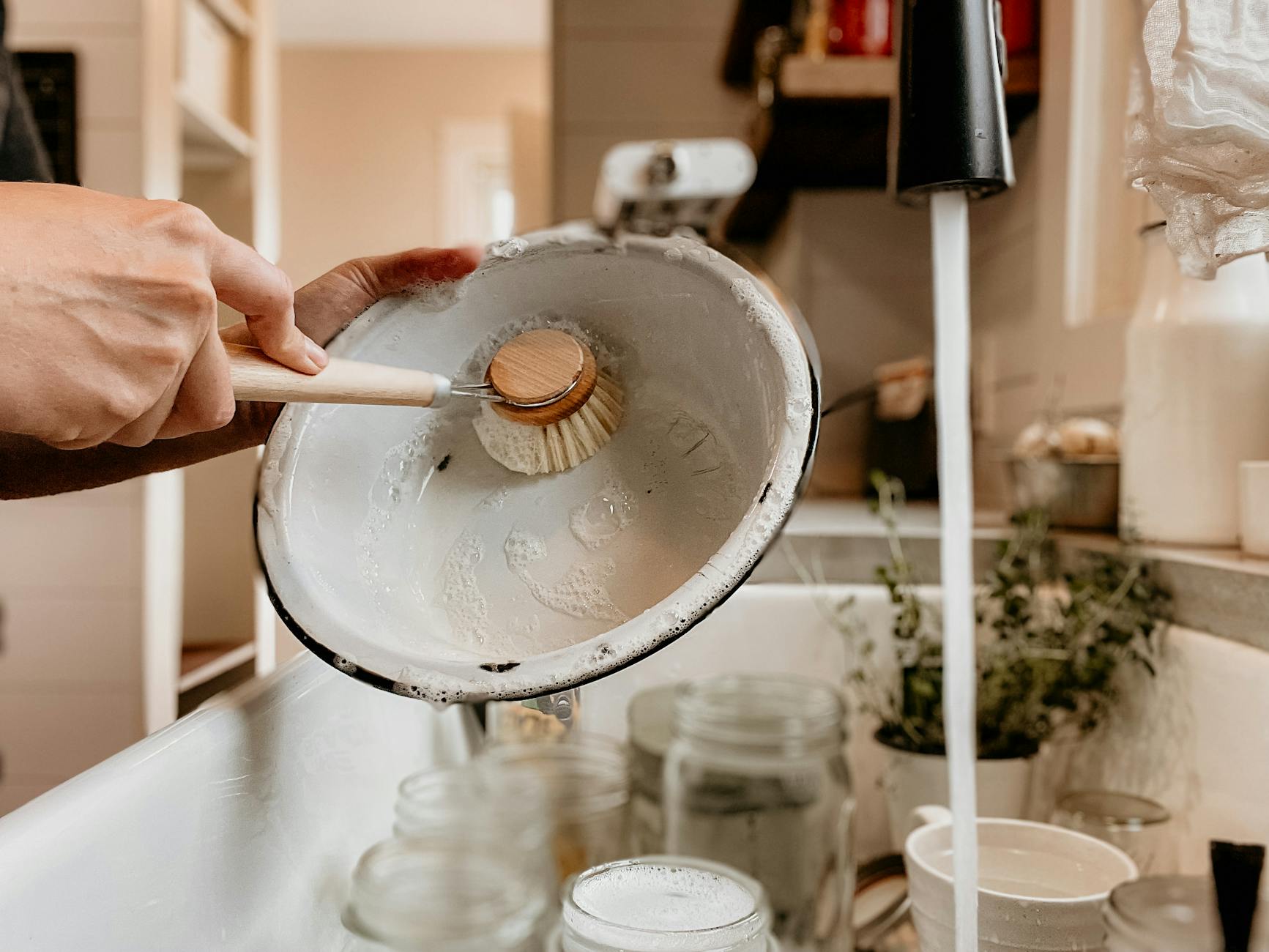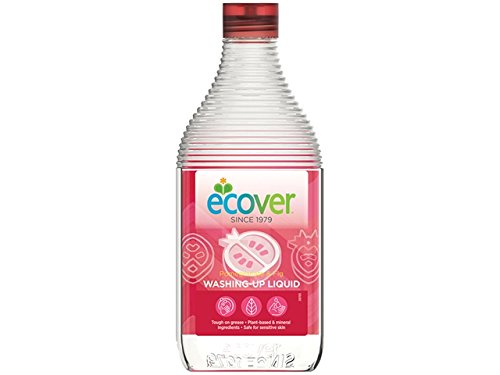
The Hidden Toxins in Your Dish Soap
Are you searching for the Best Non-Toxic Dish Soap to protect your family from hidden chemical exposure in your daily routine? Dishwashing is arguably the most frequent cleaning task in any home. Consequently, your choice of soap acts as a primary factor in your daily health. When hot water hits the soap, harsh chemicals like synthetic preservatives and fragrances become aerosolized. Therefore, you breathe them in while you scrub your plates.
Furthermore, toxic residue often fails to rinse clean. This allows chemicals to transfer directly from your plates to your food. As a result, you face low-level, continuous internal exposure that can disrupt your digestive system over time. For us at Swap The Toxins, this bottle represents a relentless entry point for unwanted chemicals. Your family encounters these substances multiple times every single day.
Why Most “Natural” Brands Are Just Greenwashing
The biggest threat to your wellbeing isn’t always clearly labeled toxic products. Instead, greenwashing often hides the truth behind misleading marketing. Therefore, our mission involves looking beyond these labels to find products that offer genuine value and safety. Many major brands selling “natural” dish soap still rely on known skin allergens and synthetic dyes to maximize their profits. For this reason, our mission involves looking beyond those misleading labels. Consequently, We conduct independent vetting to ensure every product we recommend is safe for your family.
Time To Make That Healthy Living Change For Your Non-Toxic Home
Ready to make a meaningful, immediate improvement to your family’s health? Swapping your dish soap is one of the highest-impact, lowest-effort changes you can make today. Browse our vetted list below to find a product that cuts grease without exposing you to harmful toxins.
The Toxins to SWAP NOW for Safer Dish Soap
| Toxin to Avoid | Why to Avoid It & What it Does |
| Methylisothiazolinone (MI) | Common preservatives linked to severe skin allergies and toxic to aquatic life. |
| Synthetic Fragrance | Often includes phthalates and VOCs that act as endocrine disruptors. |
| Phthalates | Hidden under “fragrance,” these are linked to reproductive and developmental issues. |
| SLS / SLES | Harsh surfactants that strip natural oils; SLES can be contaminated with 1,4-Dioxane. |
Our Top 3 Best Non-Toxic Dish Soap Swaps at a Glance
|
$20.86
|
$19.99
|
$7.19
|
|
Unique Value:
Leaping Bunny Certified and dermatologically tested.
|
Unique Value:
Multi-purpose cleaner that tackles tough, baked-on grease.
|
Unique Value:
EWG Verified™ and specifically designed for delicate skin.
|
Your Best Non-Toxic Dish Soap Swap choices
We know that one-size-fits-all solutions rarely work, especially when it comes to the products you bring into your home. That’s why for every item in this category, we’ve carefully selected three distinct alternatives, each chosen to serve a specific consumer priority. Whether you prioritize eco-friendliness and sustainable sourcing, seek the best value without sacrificing quality, or require an allergy-friendly product to protect your skin, you will find a choice here. Our selection offers a tailored solution for every household.
🌎 Eco Choice: Ecover Pomegranate & Fig
Ecover is the definitive swap for the everyday consumer who wants to upgrade from conventional brands without a complicated search. This liquid utilizes lactic acid and plant-derived surfactants to cut through grime efficiently. While it’s a powerhouse on grease, it is also formulated to have a minimal impact on aquatic life. Therefore, your clean dishes don’t come at the expense of our oceans.
| ✅ BENEFITS | 💡 THINGS TO NOTE |
| Smart Green Science: Made in a Zero Waste certified factory using biodegradable ingredients. | Owned by SC Johnson, which some strict eco-activists prefer to avoid. |
| Recycled Packaging: The bottle is made from 100% recycled plastic (PCR) and is fully recyclable. | Contains Limonene and Linalool, which can be mild allergens for some people. |
| Dermatologically Tested: Specifically formulated to be gentle on your hands during long washing sessions. | It is very effective in hard water, but a little goes a long way—don’t over-pour! |
🛒 Value/Convenience Choice: Dr. Bronner’s Sal Suds Biodegradable Cleaner
When you prioritize performance and value, Dr. Bronner’s Sal Suds stands out as the most powerful concentrated non-toxic option. While the brand technically labels it a multi-purpose cleaner, a few drops effectively wash an entire sink of dishes. This concentration makes the product incredibly economical for any household. It possesses an exceptional ability to cut through tough grease, and the packaging features 100% post-consumer recycled plastic.
| ✅ BENEFITS | 💡 THINGS TO NOTE |
|---|---|
| Extreme concentration offers the best value for money per wash. | Contains Sodium Lauryl Sulfate (SLS). While plant-derived and safe, many “clean” consumers actively avoid SLS. |
| Unbeatable degreasing power that tackles baked-on food effectively. | As a strong concentrate, it can be slightly more drying to the hands than gentler, specific dish soaps. |
| Truly multi-purpose (dishes, laundry, floors) reducing cabinet clutter. | The concentrated formula must be diluted properly to prevent streaking or residue. |
🌸 Allergy-Friendly Choice: ATTITUDE Dishwashing Liquid (Unscented)
ATTITUDE is the best liquid swap for the hypersensitive and those prone to allergies. This liquid is EWG Verified™ and specifically formulated to be non-irritating, featuring a fragrance-free base that minimizes exposure to undisclosed chemicals and respiratory irritants. This is the simplest liquid swap that still provides good sudsing and grease-cutting power while prioritizing skin health.
| ✅ BENEFITS | 💡 THINGS TO NOTE |
|---|---|
| EWG Verified™—Meets the strictest standards for ingredient purity. | Contains Sodium Coco-Sulfate (a gentler sulfate alternative), which a few users with extreme skin sensitivity may still react to. |
| Hypoallergenic and dermatologist-tested, approved by the National Eczema Association. | Like most concentrated liquids, its safety warnings include ‘Causes serious eye irritation’ (standard but important to note). |
| Uses a natural degreasing agent (saponin from plant extracts). | Some users find it pricey and needs a larger amount to generate the same level of suds as conventional soap. |
FAQs for Dish Soap
A1: No. Our research shows that brands often use ingredients like MI/BI (skin allergens) or harsh sulfates while labeling the product “natural.” The most transparent non-toxic brands will seek third-party certification like EWG Verified or MADE SAFE, as these require full ingredient disclosure and vetting.
A2: This is almost always due to the soap reacting with the minerals in hard water. Traditional dish soaps contain harsh chemical sequestrants to bind mineral ions; non-toxic soaps rely on gentle, plant-derived ingredients. Try washing with hotter water, ensuring the soap is fully dissolved, or adding a splash of distilled white vinegar to your final rinse water.
A3: Undisclosed Synthetic Fragrances are the most insidious. They often contain Phthalates, which are potent endocrine disruptors linked to reproductive issues. When looking for a clean swap, choosing fragrance-free or one scented only with clearly labeled essential oils is the best way to eliminate this risk.
Continue Your Non-Toxic Swap Journey…
Ready to transform more areas of your life? We have comprehensive guides for both home and body product categories, plus our non-toxic gifting hub:
- Non-Toxic Home Swaps: See vetted reviews for Non-Toxic Home Swaps for a cleaner living space.
- Non-Toxic Body Swaps: See vetted reviews for your Non-Toxic Body Care routine
- The Non-Toxic Gift Guide Hub: Explore our curated selections for every occasion, ensuring your high-value gifts are always safe and sustainable.
- For Our Full Library: Explore all articles, guides, and insights in the Swap The Toxins Blog.


